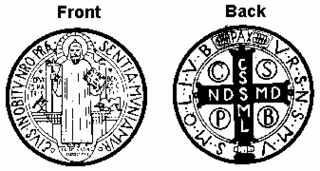A Very Special Day
Today, October 5th, is important to me for a lot of reasons.
First of all, it's my mother's birthday - happy birthday Mom! I love you!
Second, it's the day that hockey returns! Go Sens Go! Let me just say right now, at the beginning of the season, that I've been an Ottawa Senators fan every since I started liking hockey, and I've stuck with them through all their rough years and playoff choking. This is our year, baby. Leafs fans, get out your Kleenex!
Ahem. Calming down now...
Third, we celebrate St. Luigi Scrosoppi today. Check out this snippet on his canonization from the archives at Zenit.org:
Doctors in 1996 had given up hope for Peter Changu Shitima, an AIDS patient from Zambia.
The young catechist was suffering from neuritis, an inflammation of the nerves. He often felt cold and exhausted and had troubling hearing and seeing.
HIV-positive, his prospects were not good. "We believed he was in the terminal phase," Dr. Pete du Toit later testified.
But Changu did not give up hope. He and the Catholic community of Oudtshoorn, South Africa, where he lived, started praying for the intercession of Blessed Luigi Scrosoppi, of the Oratory of St. Philip Neri. Changu was a student with the Oratory in Oudtshoorn.
The prayers worked: Changu had what his doctors called a miraculous recovery.
... Father John Newton Johnson, the Oratory's superior, later wrote in the minutes of the canonization process, the domain of the Vatican Congregation for the Causes of Saints, that Changu "began to feel faint and complained that he was tired. I thought it was simply exhaustion. Then we thought it might be a severe cold or influenza. Then the process accelerated. Dr. Pete du Toit told us that we should take him to the hospital."
Du Toit, a South African, declared for the process of canonization that "daily Dr. Johannes Le Roux, my assistant, and I, took care of Peter Changu Shitima when he entered hospital on June 8, until August 14, 1996. This can be verified by the hospital notes. ... We believed he was in the terminal phase and, given the opinion that there was nothing to be done medically to cure him, I consulted Dr. Foster, who examined him once and concluded that he was a terminal patient."
"Then we all agreed to send him to Zambia so that he could spend his last days with his family," du Toit's testimony continues. "He understood that he was about to die."
Changu, who by now could scarcely lift his legs and had developed a serious form of peripheral neuritis, recalled: "Before going into hospital, I did not take it seriously, I thought I would recover. Then, once in hospital, I felt the impact."
"When the doctor told me what I had, I was destroyed," he said. "But I thought the only thing I could do was to pray and ask God for strength. I prayed to Luigi Scrosoppi and I told him that I would either die or be cured through his intercession, if it was the Lord's will."
The Catholic community of Oudtshoorn, near Capetown, also began to pray to Blessed Scrosoppi [1804-1884] on Changu's behalf.
On the night of Oct. 9, 1996, Changu went to bed as normal. During the night he dreamed of Scrosoppi. The next morning Changu woke up feeling extraordinarily well.
"I got up and went to work immediately in the parish," he later said during the canonization process. "I was hungry, and I walked until I arrived in a village that was quite far away."
Hoping to return as soon as possible to Oudtshoorn, Changu sent a letter to Father Johnson, the superior at the Oratory, to tell him he was cured.
The doctors Le Roux and du Toit, both non-Catholics who had extensive experience in cases of AIDS patients, did not hesitate to use the term "miracle" in describing Changu's recovery.
Le Roux said: "He was a terminal patient and, in a couple of months, he was cured. If there was another reason, totally different from neuritis, then a person could be cured. However, not only did he have neuritis, he had lost some 22 kilos, suffered from fever and other dysfunctions. The blood analysis shows that he is still positive with the HIV virus, but, in my opinion, it is a miracle. We thought he was going to die and, to be honest, he is very well now."
Du Toit made this statement: "Months later, someone told me Changu was better. I told myself this was impossible. I was astounded. I thought it was a mistake. When he returned, I asked him to come for examinations. I made blood analyses again in February and March after his return. I was astounded. Changu had been cured of the disease, of the neuritis that was killing him, because of AIDS. I cannot explain this scientifically."
The doctor concluded: "Changu is an authentic example of a miraculous cure."
I believe in the communion of saints - that great cloud of witnesses - what company to be in!



